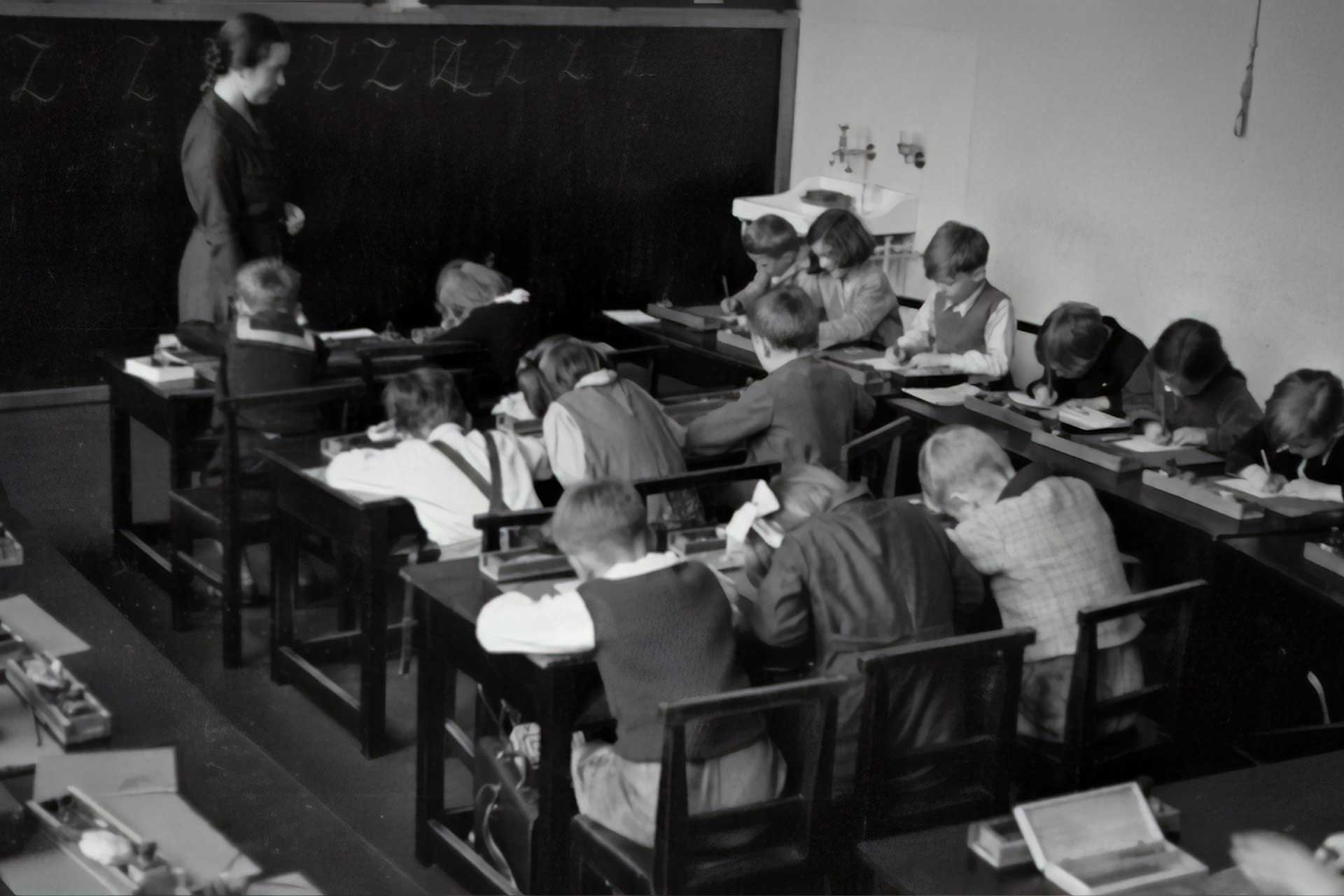A group of philosophers, cultural critics, and social scientists based around the Frankfurt (Germany) Institute for Social Research were primarily concerned with integrating philosophical analysis with then-recent results in the social sciences as part of a political critique of society. Early work in the Frankfurt School, exemplified by Max Horkheimer (1895–1973), sought to interpret the social sciences within a Marxist framework, whereby norms of evaluation were to be understood as determined by historical context. Such Marxist restrictions were later relaxed, but the Frankfurt School remained committed to the idea that philosophical interpretation of the social sciences could be used as a tool for political emancipation. Following World War II, this emphasis turned to an increasingly pessimistic “critique of instrumental reason,” a term for the dehumanization of man caused by a bureaucratic society that treats nature as nothing more than a resource. In response, Theodor W. Adorno (1903–1969) argued that only aesthetic experience allowed the possibility of a genuine (that is, non-instrumental) relationship with the world. The second generation of the Frankfurt School has been more optimistic. Jürgen Habermas (b. 1929) developed theories of communication, arguing that the possibility of political emancipation lies not in Marxist dialectic, but the discursive practices of liberal democracy.
Trending Post
Books
-
 Discipline Is Destiny: The Power of Self-Control (The Stoic Virtues Series)
$15.99
Discipline Is Destiny: The Power of Self-Control (The Stoic Virtues Series)
$15.99
-
 Stillness Is the Key
$7.99
Stillness Is the Key
$7.99
-
 Right Thing, Right Now: Justice in an Unjust World (The Stoic Virtues Series)
$28.00
Right Thing, Right Now: Justice in an Unjust World (The Stoic Virtues Series)
$28.00
-
 How to Think Like a Roman Emperor: The Stoic Philosophy of Marcus Aurelius
$13.12
How to Think Like a Roman Emperor: The Stoic Philosophy of Marcus Aurelius
$13.12
-
 Letters from a Stoic: Penguin Classics
$14.52
Letters from a Stoic: Penguin Classics
$14.52
biographies
-
 Zeno of Elea December 3, 2023
Zeno of Elea December 3, 2023 -
 Zeno of Citium December 3, 2023
Zeno of Citium December 3, 2023 -
 Xenophanes December 3, 2023
Xenophanes December 3, 2023 -
 Wittgenstein, Ludwig December 3, 2023
Wittgenstein, Ludwig December 3, 2023 -
 Voltaire (François-Marie Arouet) December 3, 2023
Voltaire (François-Marie Arouet) December 3, 2023 -
 Venn, John December 3, 2023
Venn, John December 3, 2023 -
 Turing, Alan Mathison December 3, 2023
Turing, Alan Mathison December 3, 2023 -
 Thoreau, Henry David December 3, 2023
Thoreau, Henry David December 3, 2023 -
 Thales of Miletus December 3, 2023
Thales of Miletus December 3, 2023 -
 Spinoza, Baruch December 3, 2023
Spinoza, Baruch December 3, 2023 -
 Socrates December 3, 2023
Socrates December 3, 2023 -
 Smith, Adam December 3, 2023
Smith, Adam December 3, 2023 -
 Seneca December 3, 2023
Seneca December 3, 2023 -
 Schopenhauer, Arthur December 3, 2023
Schopenhauer, Arthur December 3, 2023 -
 Schleiermacher, Friedrich December 3, 2023
Schleiermacher, Friedrich December 3, 2023
Recent Posts
The Atomos Blog
- Atomos
- AESTHETICS
- ENVIRONMENTAL PHILOSOPHY
- EPISTEMOLOGY
- ETHICS
- EXISTENTIALISM AND PHENOMENOLOGY
- FEMINIST PHILOSOPHY
- GLOBAL AND COMPARATIVE PHILOSOPHY
- HISTORICAL PERIODS OF PHILOSOPHY
- LOGIC
- METAPHYSICS
- PHILOSOPHY OF EDUCATION
- PHILOSOPHY OF HISTORY
- PHILOSOPHY OF LANGUAGE
- PHILOSOPHY OF LAW
- PHILOSOPHY OF MIND
- PHILOSOPHY OF SCIENCE
- PHILOSOPHY OF TECHNOLOGY
- POLITICAL AND SOCIAL PHILOSOPHY
Related Posts
 Traditional Branches of PhilosophyPhilosophy Branches
LOGIC
Traditional Branches of PhilosophyPhilosophy Branches
LOGIC
LOGIC
Philosophy StudentDecember 12, 2023















